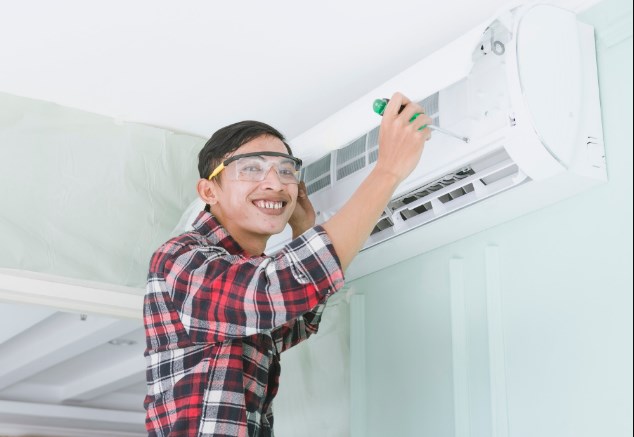The global HVAC systems market is expected to reach $370 billion by 2030, with good reason.
An HVAC system can help save money by keeping your home or office at the right temperature. It can also improve your health by removing allergens and other irritants from the air.
When you purchase an HVAC system, you want it to last as long as possible. The average HVAC lifespan is 15-25 years. However, many factors can shorten or lengthen that lifespan.
Here are some common factors affecting the HVAC system’s lifespan.
Contents
Maintenance Frequency
HVAC systems have a lot of moving parts. These parts wear out over time, and an HVAC replacement can be costly.
One way to prolong the lifespan of your system is to maintain it regularly. You should have a professional service your system at least once every year.
The inspection will help prevent any problems before they occur.
Quality of Installation
If your HVAC system is not installed correctly, it will not last as long.
A professional who has experience installing HVAC systems should do the installation. If the installer is not qualified or experienced, they may miss something during the process, which can negatively affect your system’s lifespan.
You can view the HVAC installation services linked here if you need installation help.
Size of Your HVAC System
Your HVAC system should be the right size for your home.
It will have to work harder to maintain a comfortable temperature throughout your home if it is too small. This can cause the system to break down sooner than expected.
The best way to determine the right size for your home is by talking to an expert at your local HVAC company.
Frequency and Duration of Use
You should not use your HVAC system more than necessary.
If you are running your system every day for long periods, this can cause it to wear down faster than expected. It is best to use a programmable thermostat to only have the air conditioning or heat on when needed.
This will help to save money and prevent wear and tear on your HVAC system.
Quality of the Unit Itself
A quality HVAC system will last longer than a cheaper one.
You can tell if your unit is of good quality by looking at its warranty and asking your local HVAC company about its reputation. If the unit is not of good quality, you may have to replace it more often than a well-made one.
This will cause you to spend more on repairs and replacements than on purchasing a high-quality HVAC system.
This Can Affect the Longevity of Your HVAC Lifespan
Your HVAC lifespan depends on a variety of factors. Some of those factors are within your control, while others are not.
The best thing to do is monitor your unit and ensure it runs at its best. If your system is not working as it should, call a professional for help.
Don’t forget to browse our site for advice on home, fitness, travel, and more.

